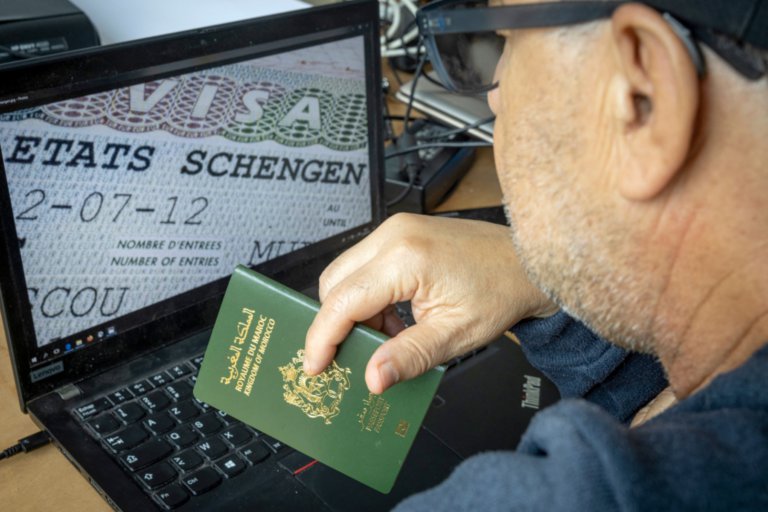
On Aug.6, a man named Saptarshi Prakash took to Twitter and shared a photo of the massive paperwork required to apply for a Schengen visa. This short-stay visa grants holders free travel into 26 Schengen EU passport-free zones, generally lasting up to 90 days.
In his Twitter post, he wrote: “Applying for a tourist visa to one of the most developed countries of the world. This is the amount of paper I m supposed to carry to prove that I have the money to stay there and come back.”
Applying for a tourist visa to one of the most developed countries of the world. This is amount of paper I m supposed to carry to prove that I have the money to stay there and come back pic.twitter.com/QInMzzJzsV
— Saptarshi Prakash (@saptarshipr) August 6, 2022
Many Twitter users reacted in shock at Prakash’s experience since the paperwork required for this visa appears to be a PhD thesis or the manuscript of a book. One Twitter user said: “This is crazy.” Another Twitter user shared: “I’m getting PTSD looking at this.”
In a follow-up tweet, he said the documents attached were bank statements, three years of income tax returns, and payslips, among others.
Given the massive amount of paperwork required for the Schengen visa, Prakash questions when this visa application process will be digitalised.

Be sure to give yourself ample time to apply for your Schengen visa so you can prevent any hiccups during your travel to the Schengen area. Source: Patrick T. Fallon/AFP
Four common mistakes to avoid when applying for your Schengen visa
As an international student in the UK or Europe, you must be eager to visit the countries around you. In fact, SchengenVisaInfo.com reports that the European Travel Commission (ETC) predicts a surge in travel demands this summer.
According to the recent three-month report “European Tourism Trends and Prospects,” the eagerness to travel will drive travel recovery in 2022 as travellers are keen to spend their savings accumulated throughout the pandemic.
If you are planning to apply for a Schengen visa, here are some common mistakes you should avoid if you don’t want your visa application to be rejected:
1. Not having all the correct documents
As we can see from Prakash’s experience, the Schengen visa requires applicants to be meticulous with their documents. Jeopardising a small part of your application, such as your passport photo not meeting the minimum requirements stated on SchengenVisaInfo.com, can lead to your application being rejected.
Certain Schengen member states may have their specific requirements, so be sure to collect the correct documents required from the country you wish to visit. Generally, here’s a list of documents that you might need for a Schengen visa application:
- Your passport
- Two passport photos
- Basic application form
- Proof of accommodation
- Your bank statements to show that you can afford travel
- Travel medical insurance
- Your visa payment receipt
- Biometric information
2. Not starting your visa application in time
Every country processes the Schengen visa at a different rate. According to Atlys, the processing time can last from 15 to 30 days. Most countries will allow you to start your application 90 days before your trip.
Atlys recommends travellers start their application 30 to 45 days before their departure date so they can deal with any unforeseen delays.

An invitation letter from your family or friends living in the Schengen area will help support your Schengen visa application. Source: Joe Klamar/AFP
3. Not having a sufficient explanation as to why you are travelling
During your in-person interview, the visa officer may question you on the purpose of your trip. Failure to provide a sufficient reason for travelling may be fatal to your visa application. To avoid this, keep supporting documents such as hotel bookings and a day-to-day itinerary so you can present them during the interview.
If you have family or friends living in one of the countries in the Schengen area, we highly recommend you request an invitation letter from them as this will help to justify your reason for travelling to the country.
4. Not checking through the visa categories
Depending on your travel needs, you should pick suitable entry categories for Schengen visas. As an international student living in the UK, you may want to apply for a multiple-entry Schengen visa which grants you unlimited entries, exits, and re-entries into the Schengen area. A single-entry visa will be a suitable option if you plan to visit the Schengen area once.










